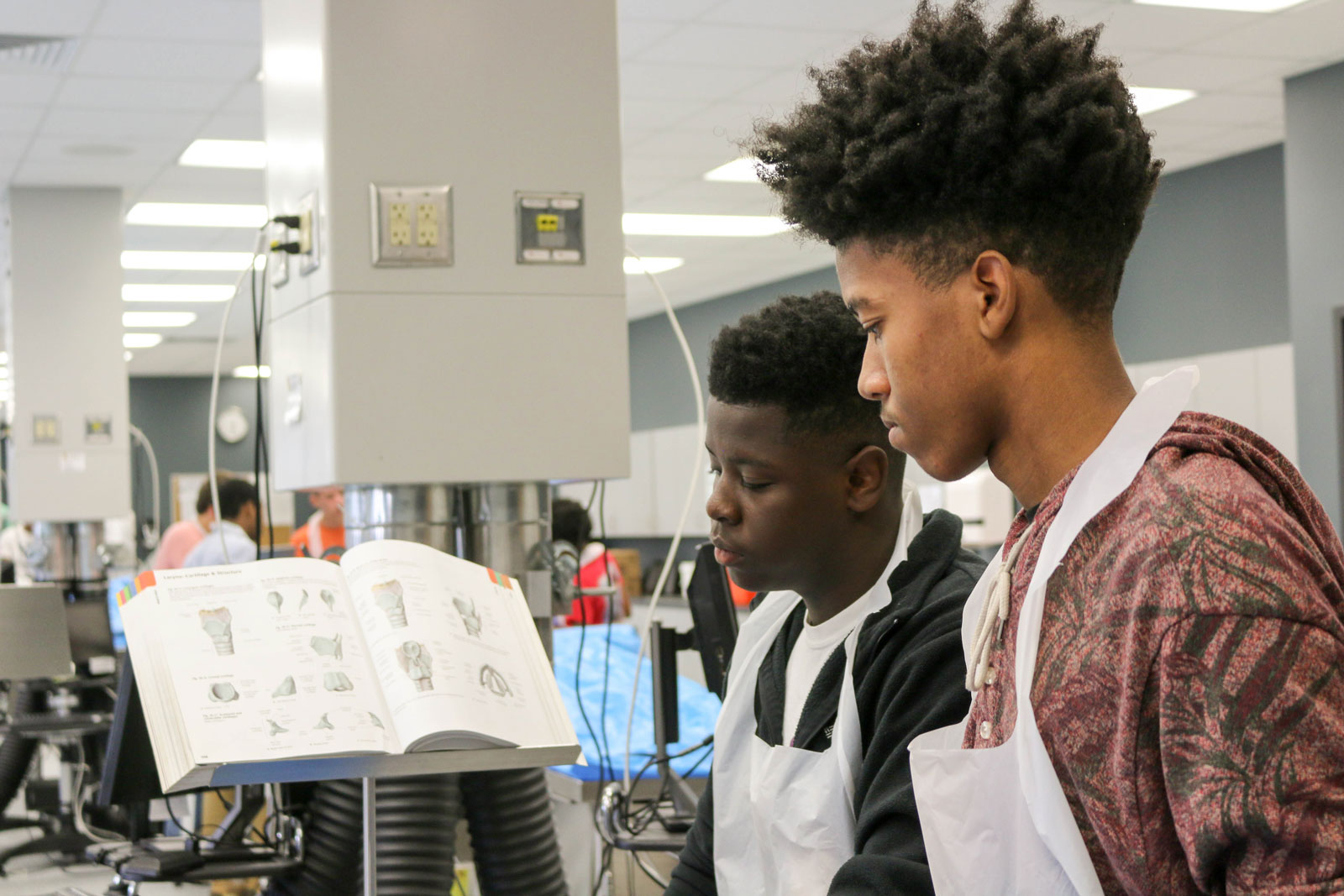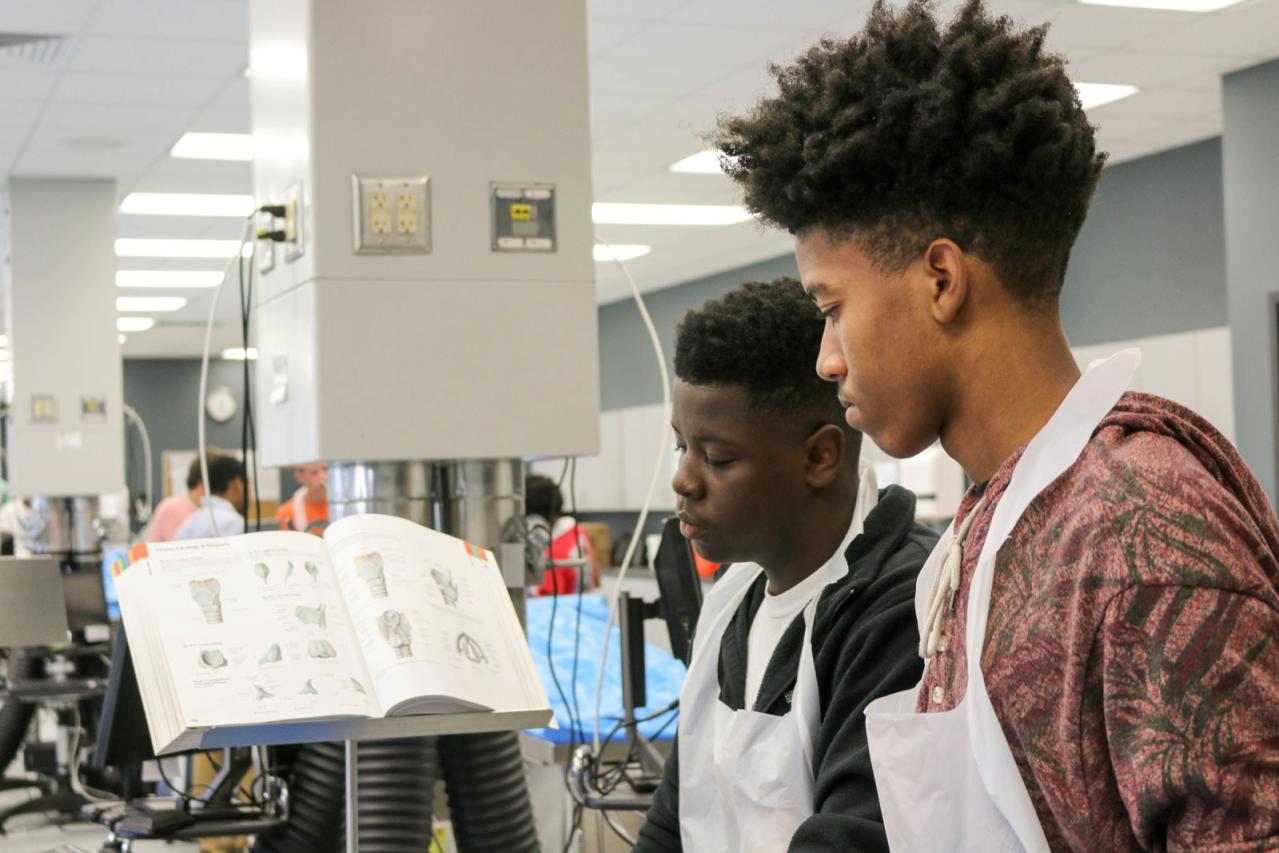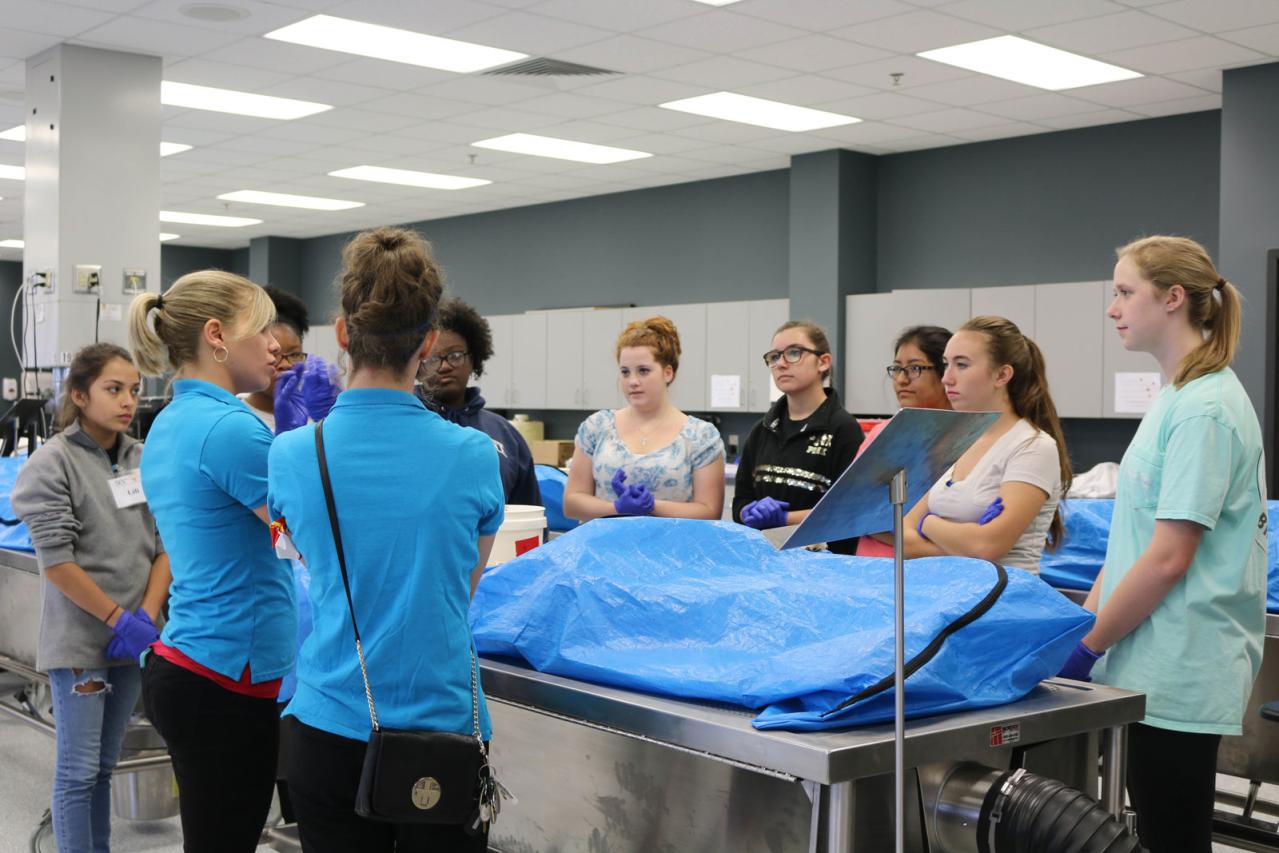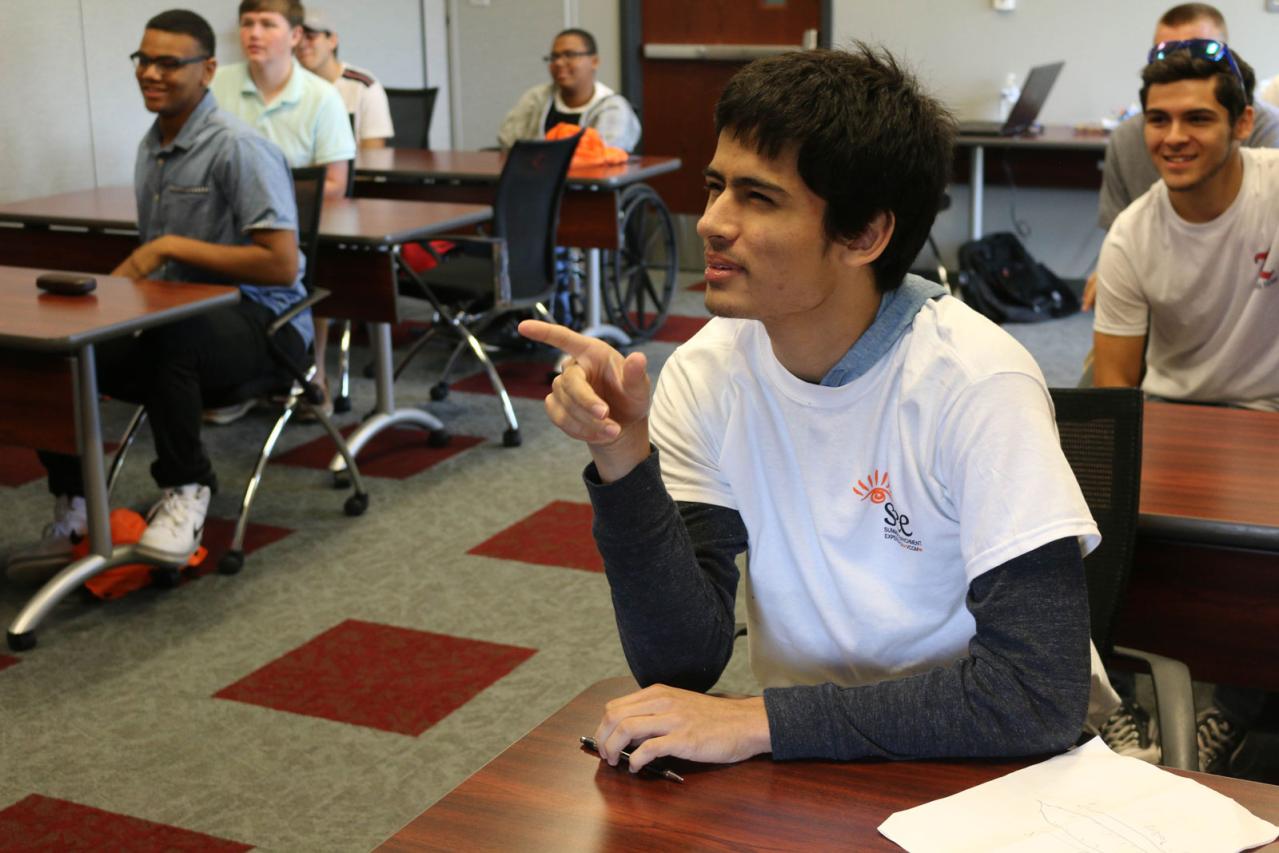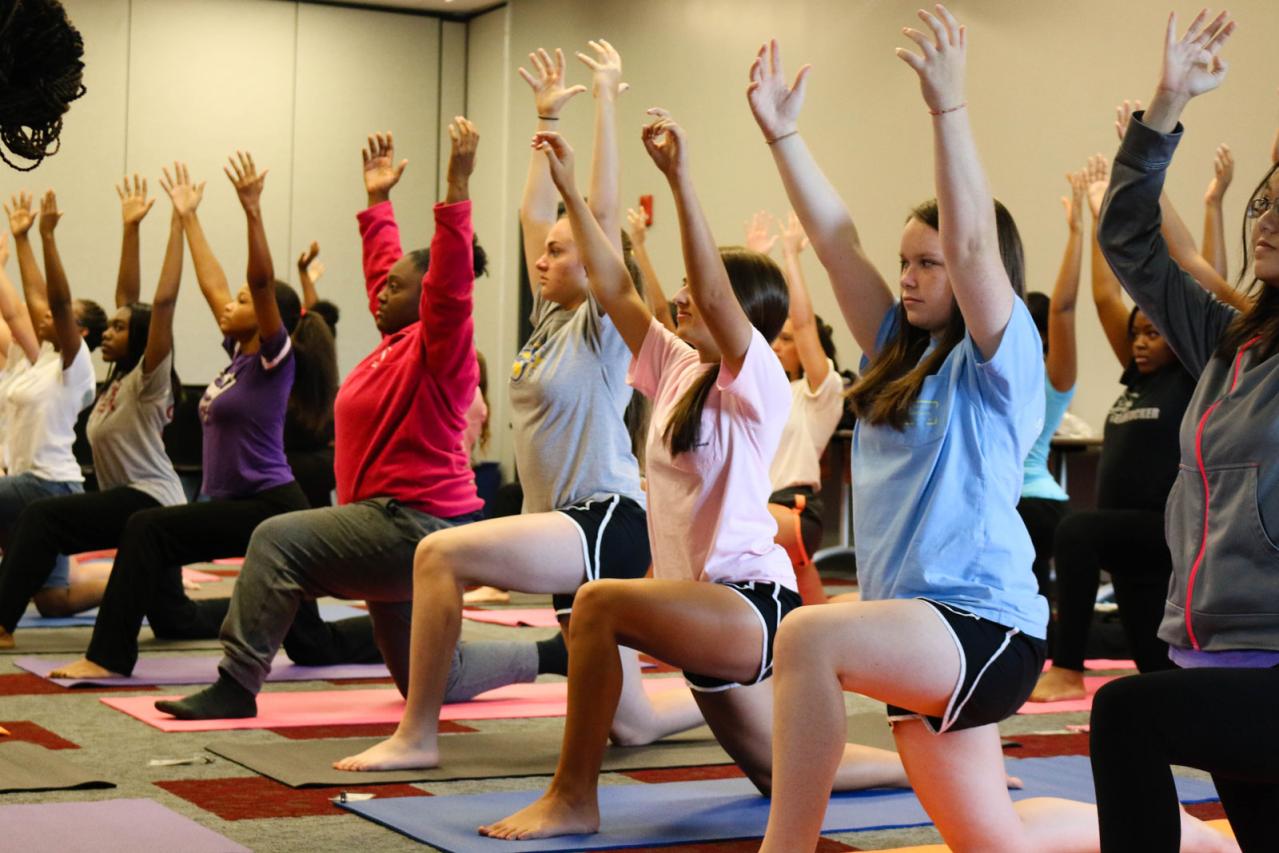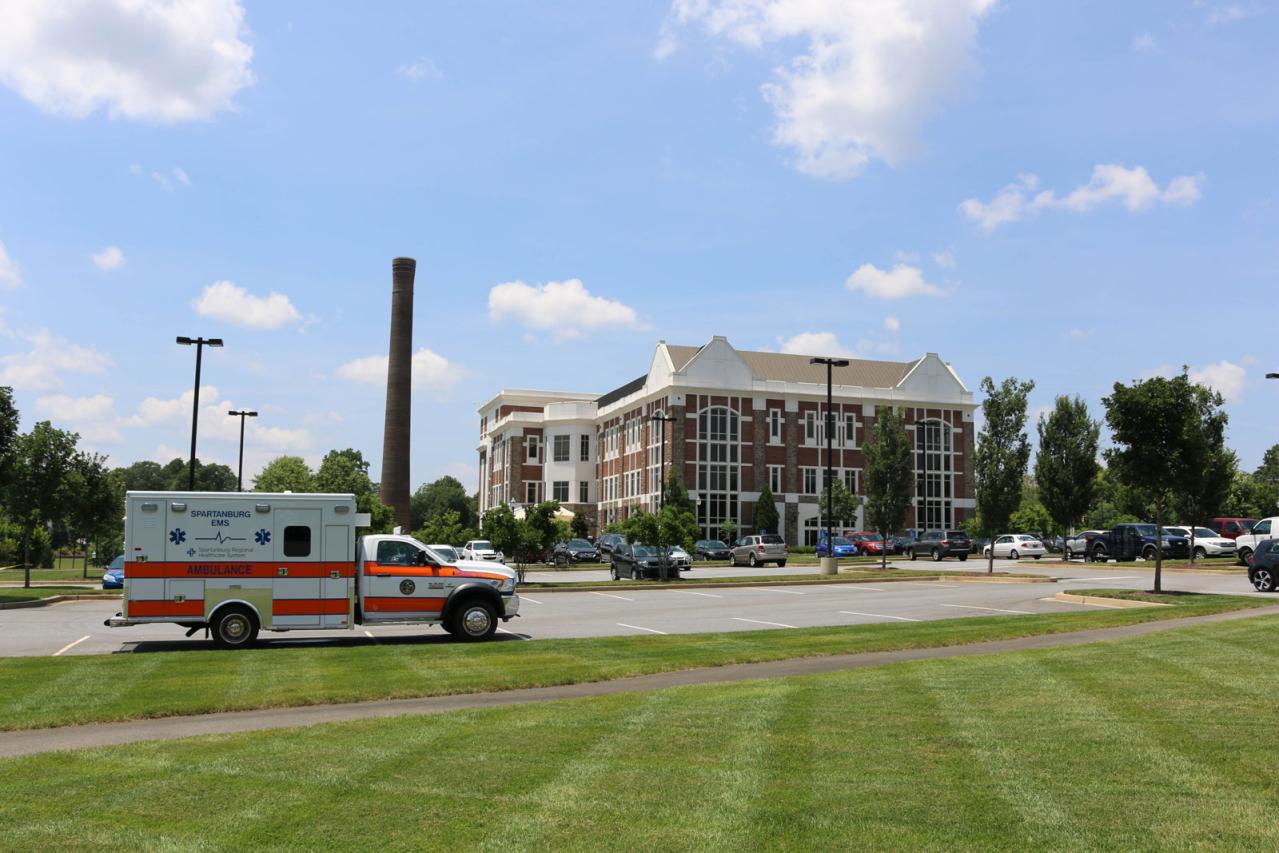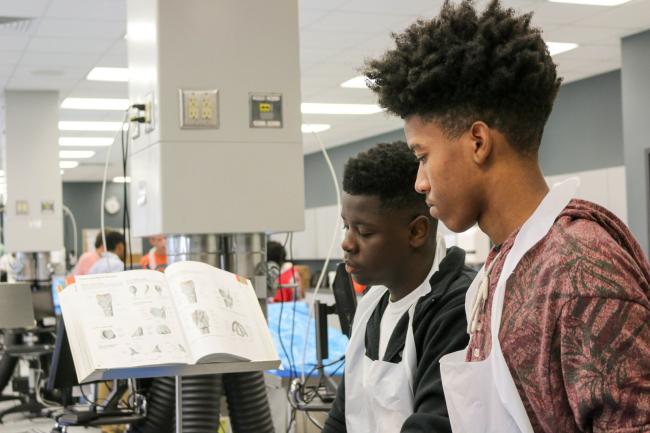
The Summer Enrichment Experience (SEE) at the Edward Via College of Osteopathic Medicine (VCOM)-Carolinas was developed to foster an interest in STEM education in students from medically underserved areas, with the hope that they might pursue a medical education and eventually return to their home areas to practice medicine. The Bosch Community Fund recently awarded a $10,000 grant to the program.
Each summer, 65 high school students are selected for a one-week experience consisting of various activities designed to stimulate interest in science and medicine. Students gain exposure to the anatomy lab and the simulation lab, and they participate in short lectures and various hands-on activities.
Additionally, students interact with first responders such as the Regional One medevac helicopter and crew, firefighters and paramedics. All activities are administered by college faculty and medical students. Participation in the SEE program equips students to take the next steps to further their education toward a possible future career in science or medicine.
To be selected for the SEE program, rising sophomores, juniors and seniors from the Spartanburg area must have a minimum grade point average of 3.0. Most participants are from rural and medically underserved areas and are often under-represented in healthcare fields.
“Students from rural and medically underserved areas are more likely to face socioeconomic barriers to a career in medicine,” said Joel Atance, MSc, PhD, discipline chair for anatomical sciences at VCOM-Carolinas, who designed and directs the SEE program. “By inspiring, encouraging and fostering these high school students’ interest in science and medicine, the SEE program can potentially create a pipeline of future physicians.”
Research findings indicate that underrepresented minorities are more likely to become practitioners in underserved communities and more likely to choose primary care/family practice as a specialty.
Racial/ethnic diversity in the healthcare workforce has been correlated with the delivery of quality care to diverse populations. More diverse physicians will help meet the pending healthcare needs of our growing diverse society.
The majority of the 46 counties in South Carolina are considered medically underserved, and the state must meet health care needs by addressing current and growing demands for primary care providers.
“The delivery of this life-changing program for area high school students can address the physician shortage in medically underserved areas by increasing the likelihood of students residing within those communities, including under-represented minorities, becoming physicians and returning to work in or near their hometowns,” said Dr. Atance.
